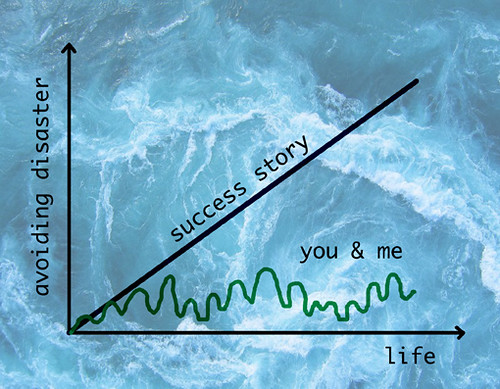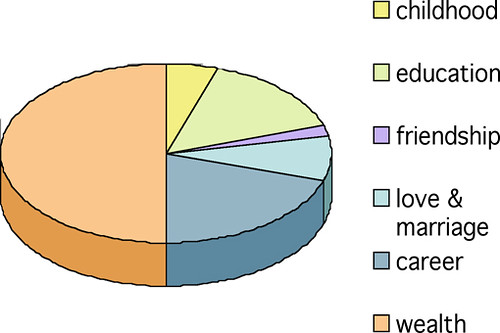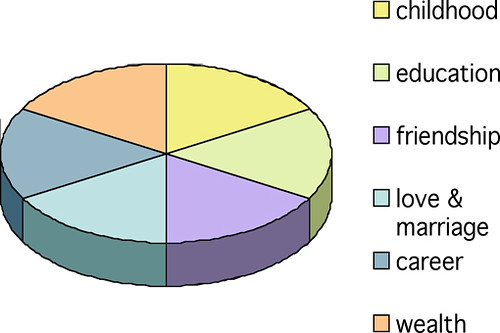I come from a long line of Irish martyrs. Not saints, but martyrs (i.e., the long suffering). It is customary in our family not to state what you need, but rather to expect people to know when you are in need of assistance. Apparently, we are all born with this strange miniature device in our brains, a radar with a Richter scope, which helps us to know whether Aunt Betty is just complaining again, or really in need of a ride to the doctor’s next week.
My miniature device doesn’t always work. And, frankly, I don’t really feel the need to get it fixed any time soon. Instead, I’ve created the following list of guidelines for certain family members and friends who are shy about grabbing the bull by its horns when it comes to telling the world what it is they need:
- State what you want clearly and politely (e.g., edit an eight page document, pick up the kids from school today at two o’clock)
- State specifically how long (e.g., time) or how much (e.g., money) help is needed
- State why you need my help (optional)
- State when you intend to payback your debt in the case of monetary loans
- Express generous thanks if I agree
- Express graceful understanding if I refuse
Here are some more items I think are important…
No preambleThere is nothing more irritating than having to listen to the whole sad scenario of why someone needs help, before they ask you for a favour. This is an example of how a friend of mine recently asked me to lend her a small amount of money until her pay cheque came in:
"Oh God, you wouldn't believe what happened… I was in the grocery store on Monday… the line up was so long… I was standing at the cash with no money and my credit card didn't work…blahblahblah…(are you asleep yet?)… so I went the bank today…"
And, I am on the phone inwardly willing my friend just to get to the point. I know, by the tone of her voice, that she needs help, but I am not sure what she wants. And, to be perfectly honest, it would have been far less torturous if she has simply said:
"Is there any chance that you can lend me xx Euros until the end of the month? Too many bills came in this month and I'm waiting for my pay cheque to come in next week."
Two sentences. Not a twenty-minute preamble. And, then I could have said, "Sure no problem", or "Sorry, I'm overdrawn at the moment as well", depending on what my situation is.
Don't wait for the point of no returnSome disasters arrive completely unannounced. Most don’t. If you are really honest, most can be seen coming a mile ahead. So, knowing this, reach out to friends and family when the next disaster is a mile ahead, or even a half a mile ahead. Give them some time and room to help you circumnavigate the impending disaster. Don’t wait until the point of no return has come. That makes the people who have to save the situation really grumpy.
A case in point, was when a university friend of mine realised, a week before her planned wedding, that she didn’t love her husband-to-be. After discussing the situation for a while, I told her to call off the wedding. She wouldn’t; all the invitations had been sent, all details planned. Nothing I said convinced her of the futility of going through with the wedding. So, the wedding day arrives, the bride panics and leaves the groom and all the guests literally left standing at the alter.
If she had cancelled the wedding a week before, her friends could have helped her make the embarrassing telephone calls to all the relatives, and perhaps even managed to cancel some of the reservations. As it was, those of us who knew of her doubts were put in a precarious situation of having known and not having done anything to prevent the humiliating, awkward, and ridiculously expensive fiasco.
Negotiate, don't dictateIf you are really in a bind, if you have really mucked up, you are no longer in the position to dictate what others are to do to get you out of your predicament. You can only negotiate whether they are willing to help. Then you have to take what they can give.
A friend of mine, Jane, has a sister, Mary, who notoriously mismanages her life. Jane and Mary's mom died last year and they each inherited a large sum of money. Jane invested her money in low risk funds. Mary went out and bought herself a new home; before selling her present home, in a town whose major employer had just gone bankrupt. Now Mary is without a job, she has two homes with mortgages, and no money to pay the death taxes due on her inheritance.
Jane receives a call from Mary lamenting over her situation and the fact that her son is due to go to college in two years and she has no savings, two mortgages, no job, and a large sum of death taxes to pay. So, Jane agrees to pay half of the death taxes. But, that is not going to solve Mary's problems. She will probably lose the houses to the bank anyways. Jane's money will just disappear in that quicksand of financial bankruptcy.
I suggested to Jane that she tell Mary she will not pay half the death taxes, but will guarantee a monthly living allowance for Mary's son when he goes to college.
So, that’s it for my mini series on the law of adaptation. I don’t expect any converts, but maybe these posts will help you reflect upon how much more balanced our lives would be, if we were not stuck on bartering our time, money, and attention but, instead, just accept the ebb and flow of give and take.















